According to the National Development and Reform Commission, the Beijing-Hebei-Tianjin hub consists of Beijing and Tianjin Municipalities, eight big cities in Hebei province - including Shijiazhuang, Baoding and Qinhuangdao - four urban nodes, including Tongzhou New Town, Shunyi New Town, Binhai New Area and Caofeidian, and an economic development area. This is also referred to as a "2+8+4 city cluster."
The Beijing-Tianjin-Hehei metropolitan region, with a population of 8.5 million, covers 183,400 square kilometers.
The joint development plan aims to make the following cities complementary to each other:
Beijing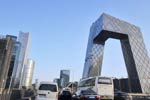
Beijing is the capital of China with a population of 21 million. It is also the country's political,cultural and international exchanges center.

Tinjin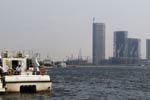
Tianjin borders Hebei Province and Beijing Municipality, and lies about 26 nautical miles inland from the Bohai Gulf off the Yellow Sea on China's east coast, and it is the largest open city on the coastline in northern China.?

Shijiazhuang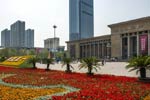
Shijiazhuang is the capital of China's Hebei province. It is about 280 kilometers (170 miles) southwest of Beijing.The city is the largest base for the pharmaceutical industry and is also one of the most important textile industry bases.

Baoding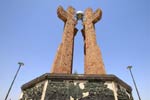
Baoding city of Hebei province is halfway between Beijing and Shijiazhuang, the capital of Hebei. Bordering Beijing, Baoding, with a population of more than 10 million, is regarded as the southern gateway to the Chinese capital.

Langfang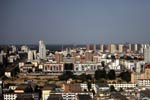
The city of Langfang is located in the east-central part of Hebei province, midway between Beijing and Tianjin, and it is thus sometimes referred to as a "corridor connecting Beijing and Tianjin".The city aims to improve its service sector so as to serve as an eco-tourism destination for visitors from the capital.

Tangshan

Tangshan is an industrial city of 7 million people in Hebei province. It is considered to be Hebei's economic center and boasts sufficient natural resources of coal, iron, petroleum and natural gas to meet the requirements of the Beijing-Tianjin-Hebei megalopolis.

Qinhuangdao
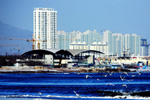
The port city of Qinhuangdao is one of China's most popular coastal destinations. It is an eco–tourism center, a major manufacturing base, hi-tech industrial base, and also a port logistics distribution base. The city is located about 300 km (190 miles) east of Beijing, on the Bohai Sea, the innermost gulf of the Yellow Sea.

Cangzhou
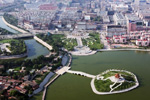
Cangzhou, a coastal city in Hebei province, faces the Bohai Sea to the east, borders Baoding City to the west and Shandong Province to the south - and it is near Beijing and Tianjin to the north. In 1988, Cangzhou was approved by the State Council as one of the county's open coastal cities, and it is known for its efficient transportation network.

Chengde
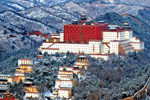
Chengde is located in the northeastern part of Hebei province, with a population of around 3.7 million. It borders Liaoning province to the east and the Inner Mongolia Autonomous Region to the north. It is near Zhangjiakou City to the west and Beijing to the southwest.
Chengde is a popular tourist destination and is known for the summer resort, which was added to the UN's World Heritage List in 1994. The city was also listed among China's first group of historic and cultural cities in 1982.

Zhangjiakou
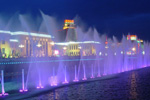
Situated in the border area of Beijing, Shanxi Province, Hebei Province and the Inner Mongolia Autonomous Region, Zhangjiakou City is sometimes referred to as the "mountain city lying to the north of the Great Wall". It is home to some of the world's best ski resorts, and Beijing and Zhangjiakou are launching a co-bid for the 2022 Winter Olympics this year.
